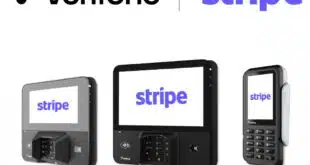A new survey shows users of remote deposit capture overwhelmingly say the benefits of the service far outweigh its risks and costs. Other recent surveys by RemoteDepositCapture.com, a news and information clearinghouse, reveal the cost benefits users assign to the service and show that many users take weeks to destroy remotely deposited checks.
RDC.com’s latest survey asks respondents if they believe remote capture’s benefits far outweigh, outweigh, or do not outweigh the risk and costs of the service. Some 84% of the 146 respondents to the unscientific online poll voted for the far-outweigh option. Thirteen percent said the benefits marginally outweigh the risks and costs, while only 3% said benefits did not outweigh the negatives.
The survey garnered responses from both consumers and financial-institution executives. A parallel poll of 320 financial institutions, whose results will be included in an upcoming broader study of remote-capture issues, found that 92% of respondents believe benefits outweigh the costs and risks, with 53% voting for far outweigh, according to John Leekley, chief executive at Alpharetta, Ga.-based RemoteDepositCapture.com.
The numbers suggest that risk tolerance has increased since banks and credit unions began offering the service on a wide scale over the past few years, Leekley says. “For a long time only the ‘bleeding edge’ [of financial institutions] offered it,” he says. “Experience matters.”
Remote deposit capture originated as a scanner-based service in which a bank customer scanned the front and back of a check and uploaded the images to a bank through an online-banking program. The mobile version of remote capture has become far more popular and enables consumers using a smart-phone camera to take pictures of both sides of a check and deposit them through a mobile-banking app.
Remote capture carries all the risks of traditional checking in addition to the added risk of duplicate deposits since the user does not give the check to a bank teller or store clerk, or mail it in for a bill payment. Still, studies have shown that duplicate-deposit fraud levels have not matched the early fears about it.
On a related risk matter, Leekley says his firm will be revisiting a topic it researched last year, when it asked respondents how long they kept checks after depositing them remotely. Results varied widely, but nearly 64% of 466 respondents kept checks for at least 31 days after deposit. Nineteen percent destroyed checks 31 to 45 days after deposit and 16% did so in 46 to 60 days. Only 7% destroyed checks in one to five days while 5% did so in six to 10 days.
Many respondents to that poll were product managers at financial institutions, and their answers reflected their bank or credit union’s policy at the time, according to Leekley. Financial institutions have been shortening their recommendations on check destruction, he says. “With mobile RDC, the longer you hold on to those checks, the greater the risk that one of those checks might disappear and be deposited again,” he says.
Still, there is a case for not destroying checks too soon. In cases where the amount entered into the electronic deposit form does not match the amount written on the check, the bank may ask the depositor to produce the original check in order to resolve the issue, says Leekley.
In still another recent poll, RemoteDepositCapture.com asked respondents to estimate the per-transaction value of a mobile deposit. It was up to users to assess value in terms of time and distance traveled to a branch or ATM saved, fees avoided, and so on. Of seven choices offered, 24% of 112 respondents said up to 25 cents; 25% said up to 50 cents, and 26% said up to $1. Eight percent said up to $2; 6% said up to $5; 4% said more than $5, while 6% found no value in using mobile deposit. Business users likely put higher value on the savings than did consumers, according to Leekley.





